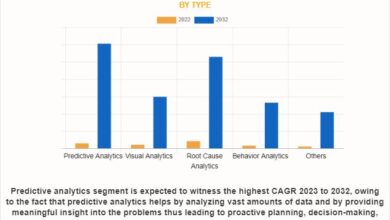Qlik aims to increase data and AI literacy across the industry

Companies may be trying to infuse artificial intelligence throughout their business, but first they have to ensure AI literacy for their employees.
With its international base of customers, QlikTech International AB is aiming to improve knowledge of best AI and data practices across the industry, according to Jamie Kiser (pictured, second from right), senior vice president of customer success and operations at Qlik.

Industry experts from Qlik, Vallourec and Business Data Challengers discuss the challenges of educating employees on best data practices.
“The foundation becomes paramount because we’re infused with so much data now,” she said. “You just can’t get away from it. It’s pouring in. The more you make sense of it and the more you build a strong data foundation, that leads you to sort of demystify this AI bit … there has never been a more exciting time to be in tech.”
Kiser, alongside Priscila de Jesus Papazissis Paolinelli (right), head of data analytics at Vallourec, and Angelika Klidas (second from left), advisor and educator at Business Data Challengers, spoke with theCUBE’s Savannah Peterson at Qlik Connect, during an exclusive broadcast on theCUBE, SiliconANGLE Media’s livestreaming studio. They discussed the path toward widespread data and AI literacy and fostering trust among employees. (* Disclosure below.)
AI literacy: Helping employees cross the AI ‘threshold’
Even though there is a lot of buzz around AI, selling employees on it can be difficult because there is a lot of confusion and distrust around large language models, according to Paolinelli.
“With data literacy, we understand that everything starts with data, data quality, data governance, data security,” she said. “We move to AI literacy, that is the capacity that the user will have to understand the results of the models, to criticize the results, to know how to make questions to the data. It’s not just to have a platform; you have to understand how to deal with that.”
The flip side of that is the potential for business leaders to jump into AI use cases without a clear sense of its limitations, leading to disappointing and inaccurate results.
“My biggest concern is that when organization or people do not even have the descriptive and the diagnostic phase of data literacy in place and start thinking about amazing wild things around AI, I’ve seen it all and I have seen it fail,” Klidas said.
Offering information in bite-sized pieces has improved data literacy without overburdening employees, according to Kiser, as well as providing a truth score with the self-service data sets put out by Qlik’s data teams. Ultimately, all three women see the barrier to AI literacy as surmountable.
“There is always a threshold that people have to go over,” Klidas said. “What I love to do to help people get over the threshold, try to understand things, but start slow, start little, have the dot on the horizon and go.”
Here’s the complete video interview, part of SiliconANGLE’s and theCUBE Research’s coverage of Qlik Connect:
(* Disclosure: QlikTech International AB sponsored this segment of theCUBE. Neither Qlik nor other sponsors have editorial control over content on theCUBE or SiliconANGLE.)
Photo: SiliconANGLE
Your vote of support is important to us and it helps us keep the content FREE.
One click below supports our mission to provide free, deep, and relevant content.
Join our community on YouTube
Join the community that includes more than 15,000 #CubeAlumni experts, including Amazon.com CEO Andy Jassy, Dell Technologies founder and CEO Michael Dell, Intel CEO Pat Gelsinger, and many more luminaries and experts.
THANK YOU



